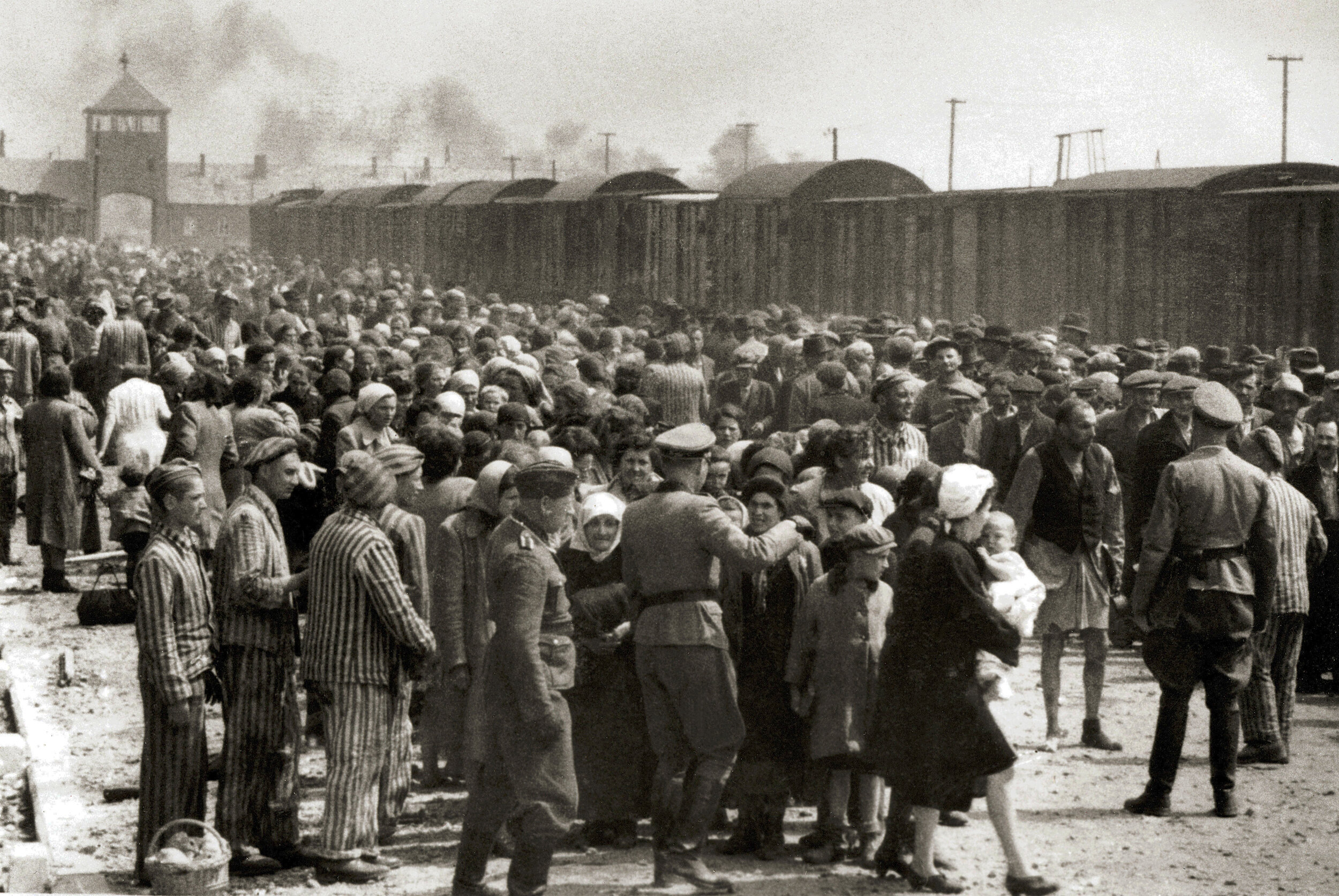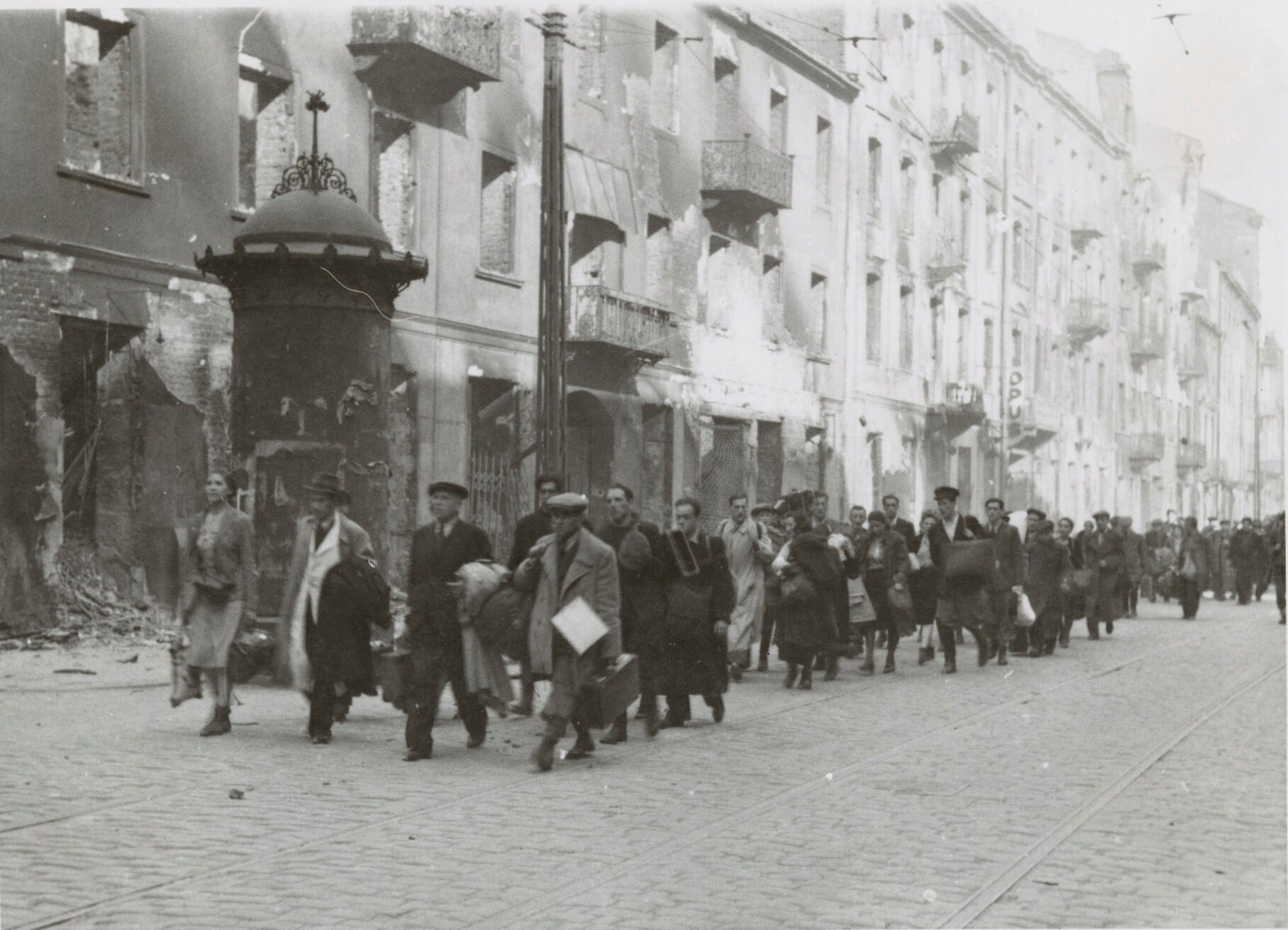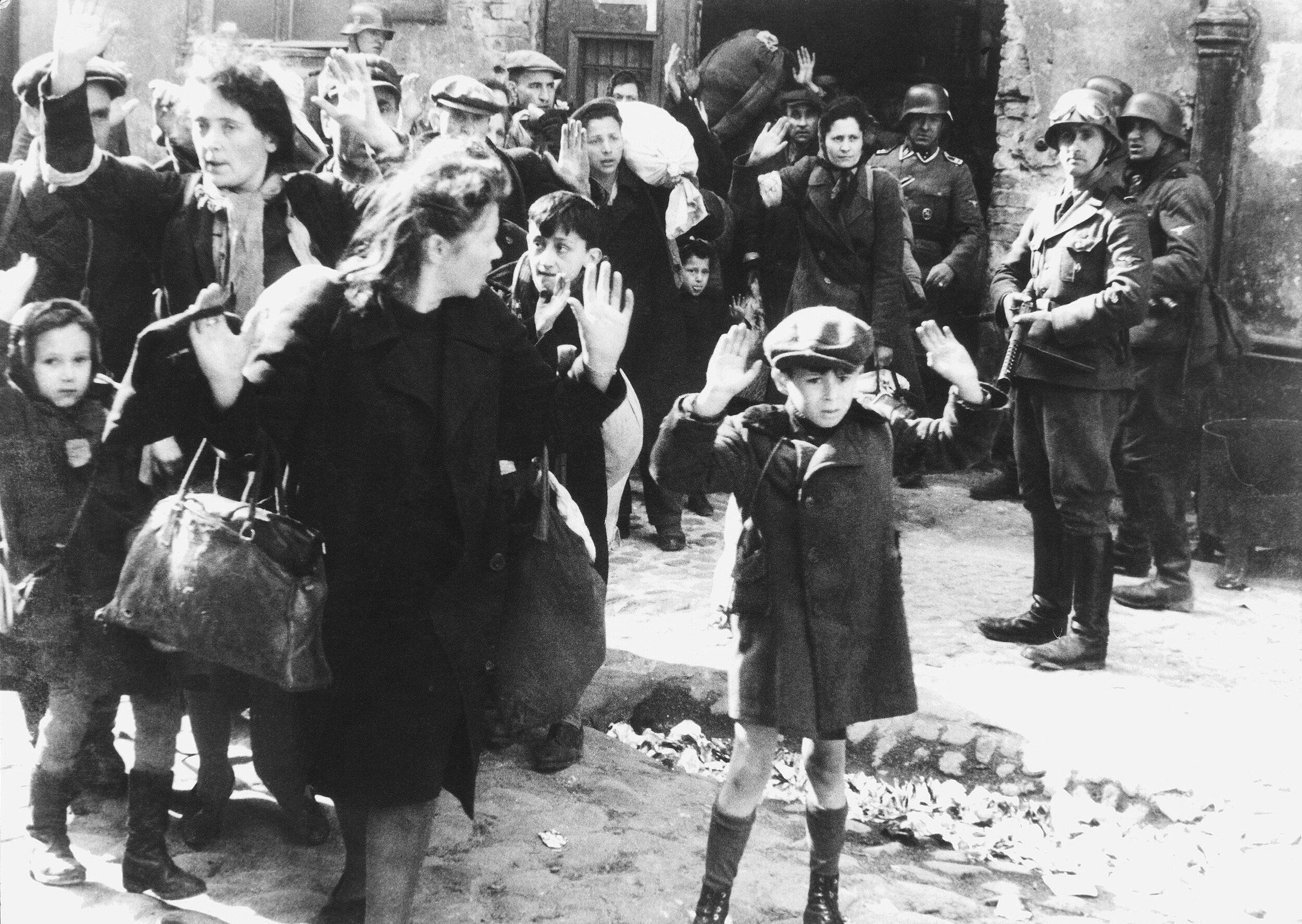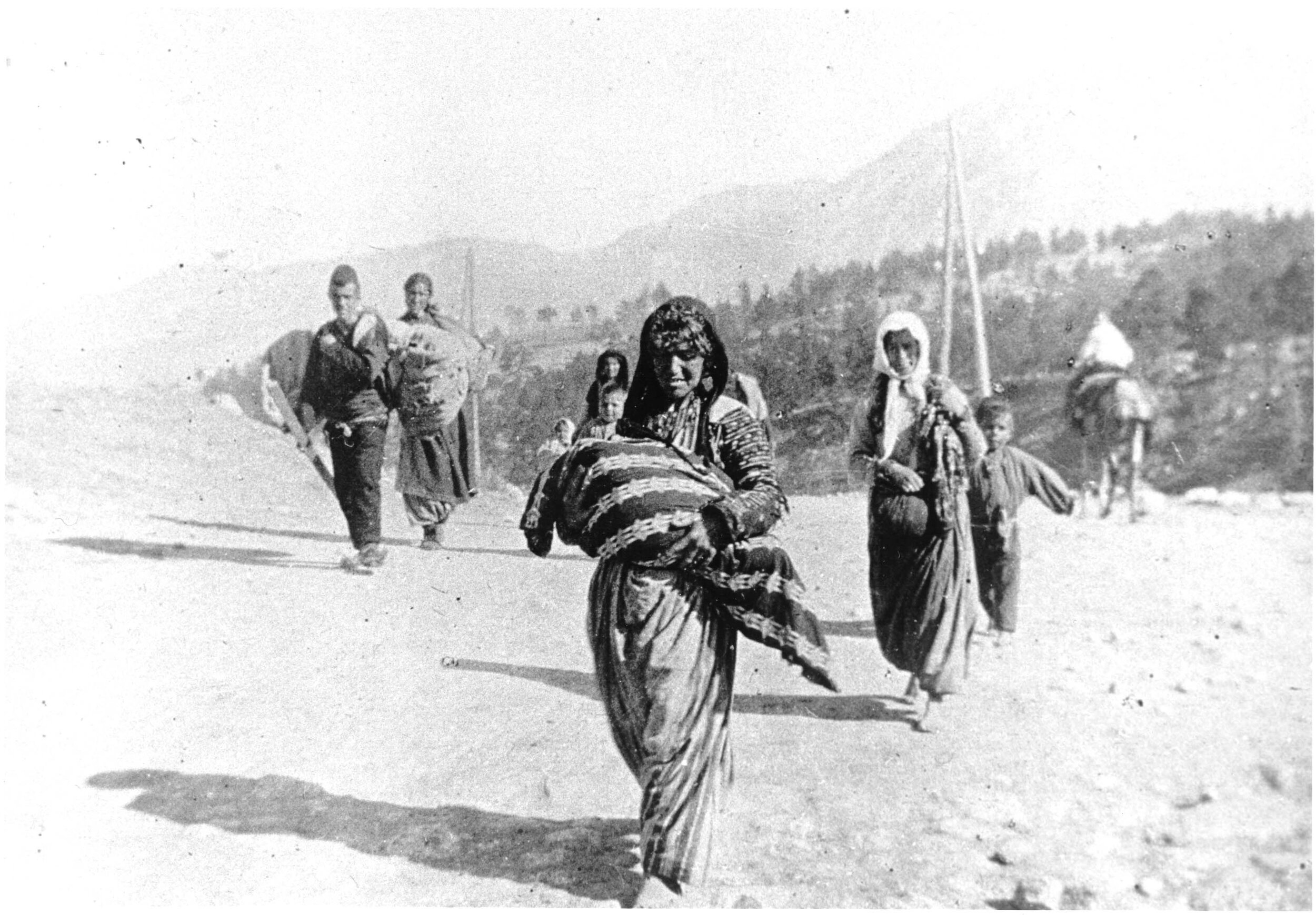#56 The Jewish Holocaust: Racism's final Horror
The key question that contemporary people around the world want to answer is, “What kind of people could perpetuate the unspeakable crimes that occurred in the 1940s war in Europe?". This is of course the correct question to be asking. But alongside it are parallel questions that are rarely investigated. 'Unspeakable' crimes were committed across the colonial world, in both South and North America's, and smaller but dreadful ways by all the colonial powers from time to time, as my blogs have highlighted. The Nazi Holocaust was the final colonialist racial crime. It is this theme that is pursued below. Here we focus on Germany alone, and as in so many cases, both sides of the conflict were deeply implicated. The Western Europeans for causing the suffering in the first place that led to the perceived need for a messianic movement for the German peoples to rise up once again.
These blogs have dealt with racism throughout the centuries. Racism was the central ideological tenet of belief that justified colonial invasion. Race was much more than an idea by itself; racism tied itself in with nationalism in a close knot in Europe after 1918. Race had provided the structure for ordering the colonies socially and politically. Christian missionary movements were all part of this structure, around superiority and inferiority.
After 1918, the two ideologies of racism and nationalism entered the European arena with a vengeance, as the old imperial territories broke up and new small nations attempted to rid themselves of 'impure' ethnicities.
The New Turkey Nationalism and the First 20th Century Holocaust
The new Turkey, which arose out of the end of the Ottoman Empire after 1918, provides an example of the consequences that racism and nationalism can lead to. Turkey was one of the first societies to impose a single ethnicity on its people. Before the advent of the Turkish state, the Ottoman Empire had included a motley mix of religions and ethnicities: Greeks, Armenians, Turks, and Arabs which included Christians, Muslims, and Jews. Between 1915 and 1923 a genocide against all the minorities was systematically carried out. This included Armenians, Greeks, Assyrians, Chaldeans, Syriacs, and Maronites who were slaughtered or exiled. At the end of the war, as the Ottomans surrendered, everyone who was not of Turkish origin had been either expelled or killed.
Refugees at Taurus Pass during the Armenian genocide. Photographed by Armin T. Wegner around 1915. Retrieved from Wikipedia Commons.
This period is often referred to as the Armenian genocide, thus excluding the Greeks and Assyrians victims. Accurate numbers are difficult to come by, but they certainly exist in the small millions. And while the Jewish genocide has remained in the minds of the survivors and their children, this genocide led by Mustafa Kemal Ataturk has been almost forgotten outside of the families of the survivors.
The Greeks travelled to the new Greek state and the Turks living in the new Greece travelled to the new Turkey. It is not difficult to imagine the huge movements of impoverished people moving to and fro in their attempt to find a state that would accept them. The Armenian Holocaust needs to be understood in this context. It was a direct consequence of the war: the first genocide under the aegis of nationalism and racism to blight the 20th century.
Ataturk the leader was himself deeply nationalistic and many still understand him as a 'modernising' man. Referring to Turks, he said:
"…he became a lightning, a thunder, a sun, a Turk. This is what a Turk is; He is a thunder, a lightning, a sun that illuminates the earth"
Franz Werfel The Forty Days of Musa Dagh Translated from German by Geoffrey Dunlop.
At an early stage in the Armenian Holocaust, a group of Armenian villages along the West Coast of today’s Turkey decided to make a stand and moved lock stock and barrel up the side of a local mountain to defend themselves. Their leader, a senior educated Armenian, Gabriel Bagradian, who had been an army officer in the Turkish army travelled to Istanbul for an interview with Emin Pasha (Ataturk) to plead for leniency in the ongoing holocaust:
"The Turkish armies were fighting for dear life on four fronts. Against the Russians in the Caucasus. Against the English and the Indians in Mesopotamia (the old name for the Arab world). Australian divisions had been landed in Gallipoli to force the gates of the Bosphorus. The fourth army was preparing a fresh onslaught on the Suez Canal” Emin Pasha had been the commander in chief for the defence of Ottoman lands
- Franz Werfel The Forty Days of Musa Dagh op cit page 15, see below
Werfel dedicates a complete chapter dealt with Gabriel's interview with Emin Pasha; here are connected comments which provide a framework for understanding Pasha’s racist views of Armenians:
"In what, Excellency, did these legally proved cases of treasonable sedition consist" asks Gabriel. Ataturk replies "Conspiracy with Russia.... conspiracy with France and England. Intrigue, espionage ...all you can think of".... "We can't keep traitors so near the Dardanelles front”
- Franz Werfel The Forty Days of Musa Dagh op cit page 139
“Would you... not endorse any and every means of freeing your country which is fighting for its life against a whole world of enemies without, from those within.”
“Would you consider it so cruel if, for the sake of victory all dangerous elements in the population were simply to be herded together and sent packing into distant and uninhabited territory"
- Franz Werfel The Forty Days of Musa Dagh Page 141
"We are an ancient heroic race, called to establish and govern a great empire. There we intend to surmount all obstacles"
- Franz Werfel The Forty Days of Musa Dagh page 144
and finally, Ataturk says
“there can be no peace between human beings and plague germs" (by which he meant the Armenians)
- Franz Werfel The Forty Days of Musa Dagh Page 145
In brief, these are the conditions in which genocide could occur as the ideological understanding of the world was driven by racism and nationalism. One group, the dominant group, were thought to be human, and the minority group were considered less than human. The Armenian Holocaust was the precursor to the Holocaust in Germany not 20 years later.
Hitler, Racism, the Armenian Holocaust and Millenarism
Hitler knew all about the Armenian Holocaust. Hitler admired Ataturk and his reforms and secularisation of Turkish society. The Turkish war of independence had been published day by day in German newspapers. Hitler wanted to imitate Ataturk's radical reconstruction of a new nation from the ashes of defeat. Ataturk defied the Western governments by seizing power in Ankara. Hitler later noted that Ataturk was his master, and he and Mussolini were his students. Ataturk was Hitler’s star in the remaking of Germany.
Racial beliefs were central to the white man’s ideas of superiority. These were the ideological justification for dividing peoples in the colonies where such divisions had never been known before. Multi-ethnic empires and peoples had lived side by side over centuries. Race created the framework for the assumption of power at every level of social intercourse in colonised territories.
The Holocaust in Germany was intended to rid the German peoples of Jews, Slavic peoples, Gypsies, and others that were considered inferior. Why was Germany developed in such a way that she intended to ‘purify’ her people by expelling millions of her minorities? It is this question that has haunted German and other academics ever since. Other intellectuals have been less inclined to ask this question, focusing solely on the Holocaust of the Jewish people.
The answer lies partially in the contemporary understanding of racism that was accepted as fact. As I’ve already argued throughout these blogs, this way of separating peoples was thought of as ‘common sense’. Race was the prism through which 'other people' were conceived. However, racism alone was not a sufficient explanation for the Jewish Holocaust. A deeper understanding of German history is necessary.
Germany had only become one nation in 1871. Previously the German-speaking peoples had spilt across Europe in a multitude of small kingdoms. There was an intense pride that most but not all German-speaking peoples had united into a single state and had developed industrial urban capitalism, very rapidly. By 1900, the German economy was growing faster than that of Britain or France.
The 1914-1918 war was understood by the German peoples as a defensive war, to stop the British from invading. Germany was fighting on French soil to protect Germany. They feared encirclement: the Russian Cossacks to the East, Britain and France to the West. Threatened as it was by "a world of enemies", a letter from the front explains:
"The war has powerfully shown us that our lives had a completely different meaning from that simply unfolding along the path of middle class family life. They are part of a great sacred aim.... It has been implanted in us from eternity and it is leading us towards something great and eternal. God is now forging our great path for world history and we are the chosen ones, the chosen tools"
This letter from a German soldier was reproduced by Christian Ingao in Believe and Destroy: Intellectuals in the SS War machine. Polity Press translated by Andrew brown page 7.
This young man gave meaning to the conflict. The war was a baptism of fire, barbarous, and pitiless, yet it provided this young man with a directive to a millenarian utopia. Patriotism became real in laying down life in defence of the nation. The 1914-1918 war gave meaning to the whole nation, with huge sacrifice. It was then seen as a war of civilisation against barbarism. Winning the war meant a new era, an era of fraternity and social justice. The young men who fought the war were imbued with millenarian hopes that transcended the immediate paroxysm of violence.
Germany lost the war, this we know. There followed continuous violence between 1918 and 1923 - revolutionary upheaval, communist and separatist attempts to wrest power, clashes between Polish and German communities. Germany's surface area was severely reduced by forced treaties. The Rhineland and the Saar were under international control; her economic sovereignty questioned by the reparations; her colonies removed in their entirety. All this was followed by the collapse of the monetary system in 1923 when inflation destroyed everyone's savings. From 1918, Germany was a country under siege from a world of enemies, at least so it must have seemed from young German eyes. When we consider the crisis facing Germany at this time, it is not difficult to envisage a movement like that of the Nazis emerging out of this with promises to recreate a ‘mighty Germany’.
Germany and its people have been consciously humiliated by Britain and France through the various treaties - Versailles, Sevres, and so on - and the vast reparations that were demanded. Historically, the winning side in any battle had always extracted reparations, but never on such a vast scale. But the 1920s was a new era, the German people were educating their elites and public opinion was one of the areas that mattered. The defeat was one thing, the peace another, as John Maynard Keynes understood. In 1918 and for the following decade, Britain was determined to reoccupy her place on the world stage, and France wished to regain her place in Europe by punishing Germany for her own humiliation in 1871 and to pay for the devastation of the war. Both countries wanted to ensure that Germany would never rise again as a great power to compete with either of them.
Neither set of leaders seemed to be aware of what they did in humiliating their foe. Patriotism, ethnicity, and racialism came together in the response of young German intellectuals to their defeat; Nazism was their response.
It was the young intellectual elite who joined the Nazi party initially. Nazism gave hope of expression, empire, and renewal. Nazism promised the salvation of a new beginning. The Party provided the emotional fervour and racial determinism justified to its adherents. They were able to construct a clear list of internal ‘enemies’ they must ‘eradicate’ if they were to create the supposedly mighty German peoples again: Jews, Communists, Freemasons, Social Democrats, LGBT people, anyone with a physical or intellectual disability, and other dissenters.
The movement had all the characteristics of a Millenarian movement, which anthropologists had so painstakingly outlined. They had focused primarily on peoples marginalised by colonialism around the world; this time the millenarian movement grew among the German peoples who managed to climb rapidly out of their despair and to develop a new dynamic polity using race as their key ideological tool.
The social and political conditions in Germany in the 1930s were the broad cause of the breakdown of the international economic order but were specifically a direct outcome of the Versailles treaty, as J M Keynes had predicted. Versailles had been led by Britain and France; the treaty had attempted to impoverish Germany, to place the blame for the origin of the war firmly on the German people’s shoulders.
When the German economy was about to collapse, Hitler offered a way out; to offer his people pride in themselves. Although, of course, we know that this comes at the cost of those considered ‘enemies’. As we look back at the Holocaust with horror, the blame is often put firmly in Germany’s court. Hitler rose to power in unique historical and political conditions, where the societies of Europe were falling apart and where Germany was the extreme of extreme conditions. Hitler used and exploited a set of ideas readily available to him, which were accepted as 'truth' across Europe: racism. The British and French governments in 1919 were playing colonisation against Germany within Europe, where 'competitive colonialism' was still the order of the day. The leading colonists of the moment, Britain and France, failed at a terrible cost.



Note: Details of the Turkish Genocide have come to me from Dr Thea Halo, the child of a surviving family.
Copyright Notice. This blog is published under the Creative Commons licence. If anyone wishes to use any of the writing for scholarly or educational purposes they may do so as long as they correctly attribute the author and the blog. If anyone wishes to use the material for commercial purpose of any kind, permission must be granted from the author.










Ideology alone was of course not enough for Hitler to rise to power. The question remains: how was Hitler able to revive the German economy sufficiently to fight a global war in a mere six years? Hitler had taken political power in Germany in 1933. Once this question has been asked, the direction of the answer is obvious: the German economy would have to be supported by the great powers, France, Britain or America; there was no other way.